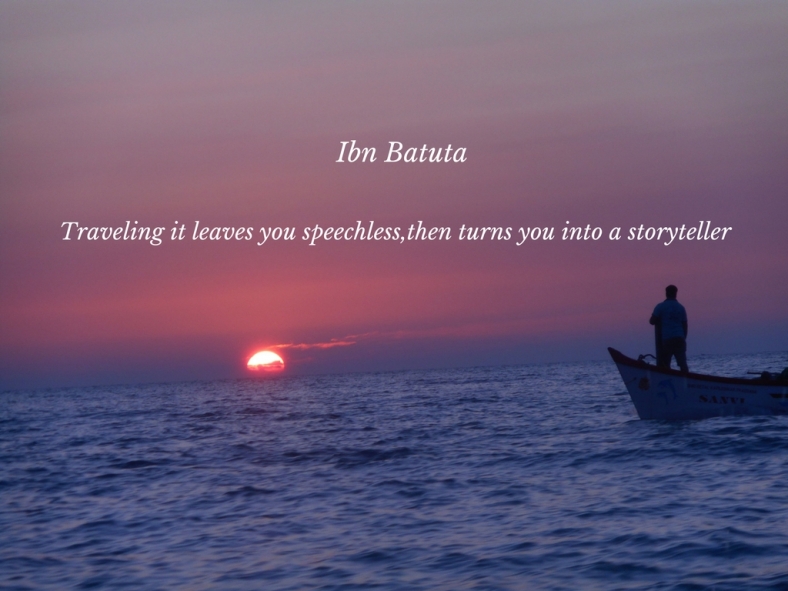
Ibn Batuta, one of the greatest travellers in the world of all times said it all, when he declared travel turns you into a story teller. Indeed, anybody who travels is a story teller. Whether one travels to an exotic location crossing seven seas abroad or goes exploring his own native land is indeed a story teller. On travels, whether you scribble in a travel diary or you tweet or share Facebook posts, photographs or scribbled diaries are all different ways of storytelling, like threads in a yarn, only you can weave.
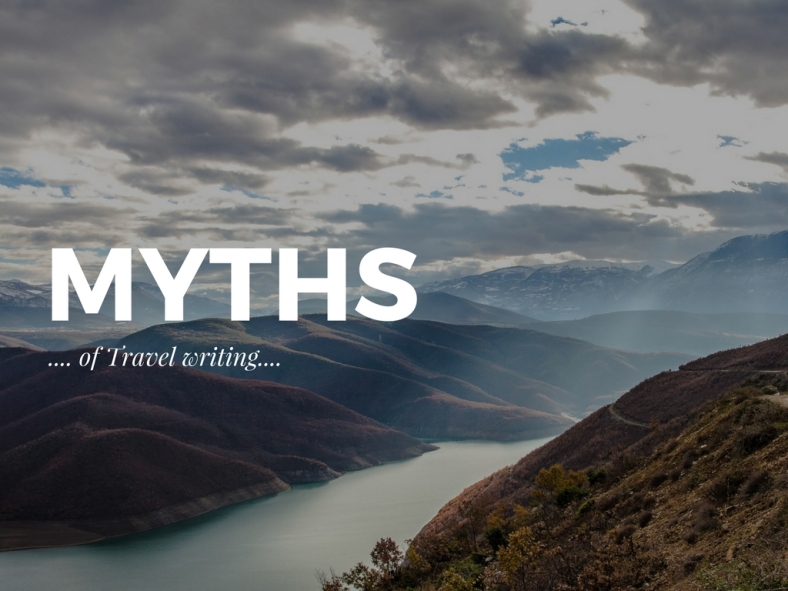
So what exactly is the fuss about “travel writing” and how can you be one? Before I get to that, I want to share some myths around travel writing:
- You don’t have to quit your job: For travel writing, you don’t have to quit your job. I know, personally of many travel writers who work full time in corporate roles and still are travel writers. And in case if you eventually do decide to quit the job, there is always a way to be a ‘digital nomad.’ Being a digital nomad means that you use technology to deliver your work, sitting remotely. That said, if you are serious about travel writing or blogging, it requires a certain amount of commitment, time, learning mind-set and lots of patience!
- Travel and Travel writing are not mutually exclusive: Just because point number 1 is true, it doesn’t mean you can write whatever you want. If you want to be an authentic travel writer, whose stories people read, you have to travel. You don’t have to travel 12 months in a year, but you have to definitely invest good amount of time traveling to be able to create content and share stories.
*Special Note: One important thing to remember here is, travel writing or blogging also involves a love for writing! I would suggest, you take this up, only if you love writing because else it can get tedious at times. If you don’t like writing, you could consider your other skills such as travel photography and travel videography.
- Travel writing and Travel blogging is not the same: Even though, travel is intrinsic to both, there’s a difference between travel writing in 6 aspects.
- Medium: The basic difference between travel blogging and writing is the medium on which the content is shared. Travel blogging means having a platform that you own- a blog! Travel writing could be for newspapers, magazines, online websites, etc.
- Content: Travel blogging is more about emotional aspects of your personal travel experience and can involve multi-tasking like photography and videography. Travel writing is more about telling great stories about destinations, people, food and focuses on the craft of writing.
- Layout: Travel blogging articles usually look more like destination guidebooks or lists. Travel writing article are usually in essay formats.
- Language: The language used in travel blogging can be fun, informal and quite casual. For travel writing, the articles usually follow a narrative format with a little more precise and formal structuring of sentences.
- Control: In travel blogging, you are the writer, editor and the photographer. For travel writers, it is usually a team work, where you write, but someone else edits and a third person works on the look and feel of the final article. Hence, the travel blogger has more power and control over what he publishes as compared to a travel writer who writes for someone else. In travel writing, a lot of times- what you write and what is published could altogether be different. (Meh, personal experience. Take that!)
- Reach: Travel bloggers have to work to reach an audience. Just because you set up a blog, doesn’t mean, you will have an audience who reads your blog. Contrarily, a travel writer must reach out to a publication, who will carry or publish his or her article.
** A travel writer could be a travel blogger. But not every travel blogger is necessarily a travel writer!
- Travel writing doesn’t guarantee lottery or free travels: This one’s my favourite myth. To be honest, travel writing seems glamorous and often looks like a fancy profession. But if you compare the hard work that goes into writing “one” article only, the fruits don’t match the efforts. Sure, there are bloggers and writers out there who boast of earning 6 figure incomes, but remember that they do so, after years of experience as a traveller, writer and blogger. In the initial stages of travel writing, it can be extremely difficult to find work. It is only in the 2nd or 3rd year (if your writing skills are that awesome, else it can take longer!) that you start receiving FAM invites or emails from brands who want to work with you. In fact, more often than not, travel writers also involve themselves in other social media, PR, teaching and any other freelance work that could supplement their income from travel writing!
Now assuming, that we have busted all the myths around travel writing, travel blogging and that you are ready to get into it, let me share some tips with you on how to put your travel life under spotlight.
Read about:
Who am I– On how my sickness led to quitting my job
Life is changing– How and why I decided to quit my job and get into travel writing
6 months of being a digital nomad– on how I manage my life and finances
On 12 months of quitting my job– How is life after quitting job?
Let’s start!
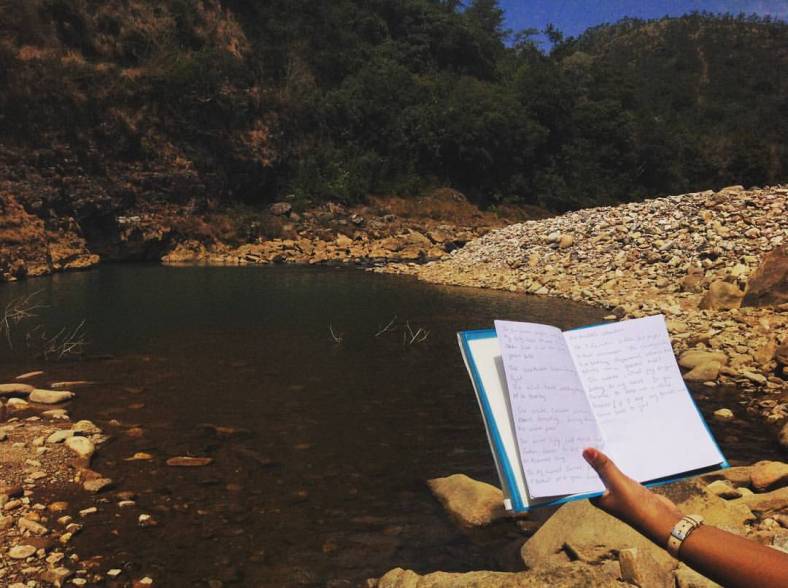
Read, read, read
Reading: Travel writing is all about writing. But great writing doesn’t come unless you read! So stop doing whatever you are doing and kick-start your dream of travel writing by reading. Read online articles, read magazines, newspapers and subscribe to travel magazines like Lonely Planet, Natgeo Traveller, Matador Network and Conde Nast Traveller, etc. If you travel by plane frequently, don’t miss reading the in-flight magazines. Don’t restrict yourself to reading Indian authors. Look at international authors, read their books, novels, articles and everything in between. Don’t restrict your reading to the genre of travel. Expand your reading in the fields of fiction, non-fiction, crime thrillers or autobiographies. Build your vocabulary and pick up skills for good writing.
Moral of the story: If you don’t read, you cannot write. Period.
Set up a blog: This is not mandatory, however, if you’re a newbie, trying to break into the world of travel writing, having a blog is an advantage. The blog acts as a portfolio of your travels and storytelling skills. Therefore, my recommendation is go for it!
Some of the blogs, I regularly subscribe to are as following. Some of them give me ideas for my stories, some are just lovely travel reads. Some offer good travel tips, recommendations on offbeat destinations, some are good to follow for their differentiating content, if you want to become a travel blogger yourself and others just wonderful storytellers.
- Travel See and Write
- Travel Shoe Bum
- The Tiny Taster
- Drifter Planet
- Interlude Journey
- Lakshmi Sharath – A Travel Blog of An Indian Backpacker
- Road to Taste
- Nostalgic Hobo
- Voyager for Life
- Runaway Juno
- Mapping Megan
- Expert Vagabond
- I am Aileen
- Wanderlust Chloe
- The Salty Fern
- The Blonde Abroad
- The Blog Abroad
- The Travel Camel
- The Open Road Before Me
- The Planet D
- Wise Monkeys Abroad
Moral of the story: Unless you have absolutely kick-ass writing skills or great luck, breaking into travel writing can be excruciating pain. It is a better idea to start your blog, write stories on the platform, hone skills, build a portfolio and then pitch to an editor!
Define your niche: Travel in itself is a broad concept. And I kid you not, there are tens and thousands of travel writers and travel bloggers out there. So, if you are serious about this, you might want to define your scope of writing. Travel revolves around various elements such as Solo travel, female travel, family travel, group travel, heritage travel, etc.
As an example, let’s take my blog Feet on the Map. It initially focused on destinations in India and abroad. Today, I focus more on destinations focusing on offbeat experiences, sustainable and responsible travel with stories around women, cultures and environment. Other examples of niche travel writing could be:
- The Shooting Star– focuses on responsible and sustainable journeys of a solo woman traveller
- Srinistuff.com– Writes on solo traveling in India with a focus on Himalayas
- DA Travelphotography– is one of my favourite photography blogs
- Travel with Neelima– focuses on offbeat and adventurous travels
- Travels and Stories– focuses on local living and responsible travels
- Luxury Columnist– focuses on luxury traveling
- The Tales of a Traveler– focuses on couple blog on luxury and lifestyle
- Haute Culture– focuses on fashion and cultural costumes of the world
- One of the great examples of a writer, who doesn’t blog but uses social media to share his journeys is Abhinandnow. His brings to fore, the lovely Himalayan stories!
Moral of the story: Be unique, be distinct and have your own voice!
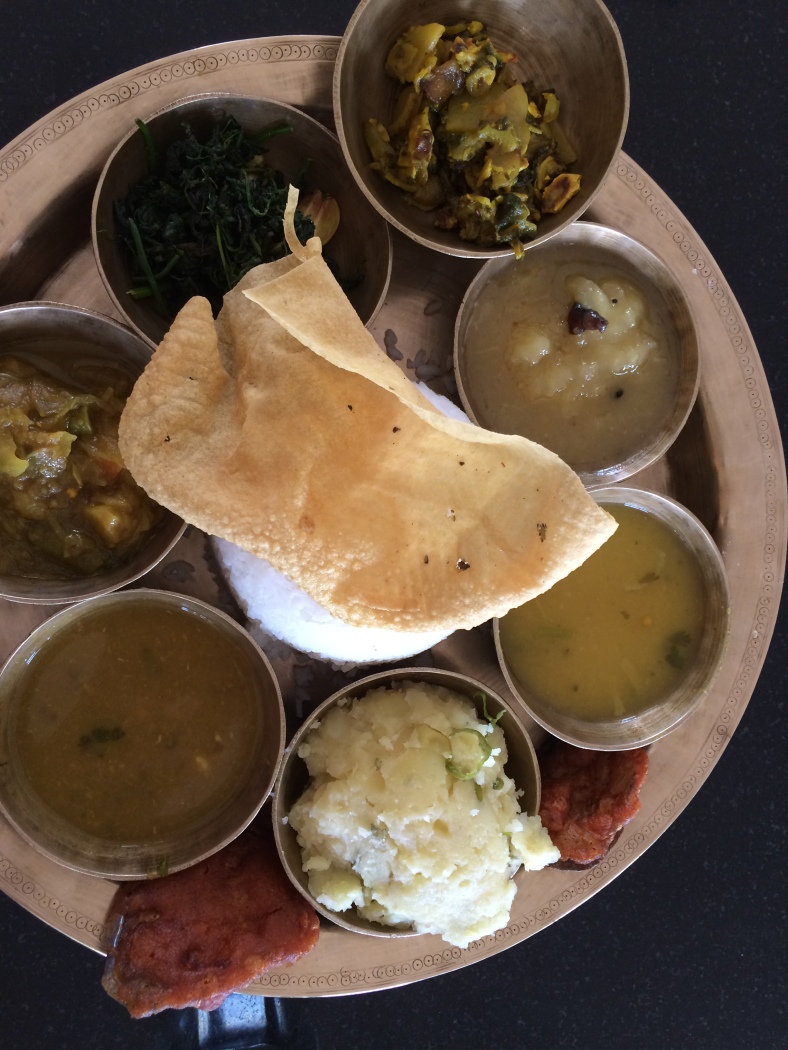
Do you want to write stories around food?
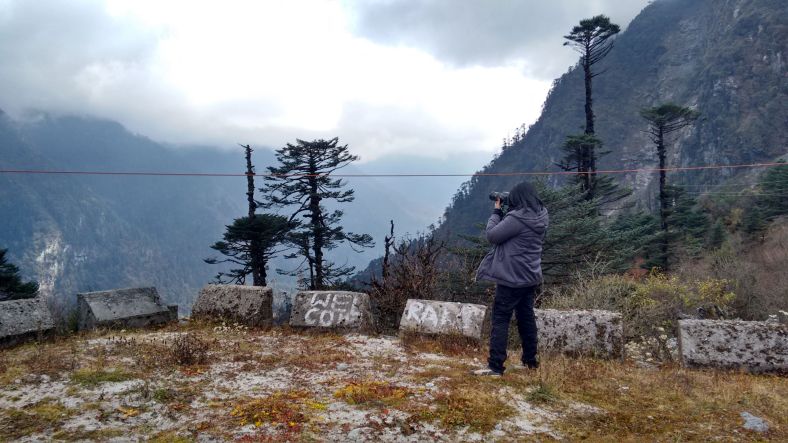
Are you a photographer?
Look for a story everywhere: Every destination, no matter, how small or big has fascinating stories. A city that looks boring or overrated will leave you for wanting for more, if only you look at it. A street-food stall, an unassuming shop, a flower seller at the traffic signal junction, a wine glass, a road sign in the remote mountains of Ladakh- you’ll get the unusual, scary, heart wrenching, heart- warming stories everywhere. Whether you are a travel writer or travel blogger, give yourself an assignment and find that one big story or experience that would define your trip. Look at stories that are defined by conflicts, fun facts, or some sort of human emotions. The stories could also have an environmental hook. Here are some of the examples of stories, I have written:
- Meeting the ancient guardians of nature
- Feast with Marwaris: A lesson in cooking and risk taking
- Reflections from Kaziranga
Some of my favourite stories that other travel writers and bloggers have written:
- The Indian City drenched in flowers
- Hyderabad to Kuchipudi: Of lyrics and ‘padams’
- Barefoot in Vellagavi
- Charlie and the Tramp
- Experiencing the Goa Tribal Fest at Xeldem
- Haji Ali and the joy of Equality
- Gaaliyon ki Raasleela
Moral of the story: Find a story!
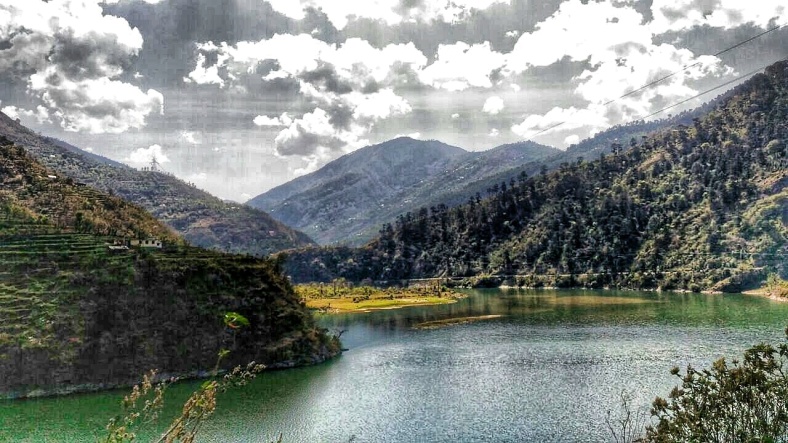
I find a lot of stories in mountains. What about you?
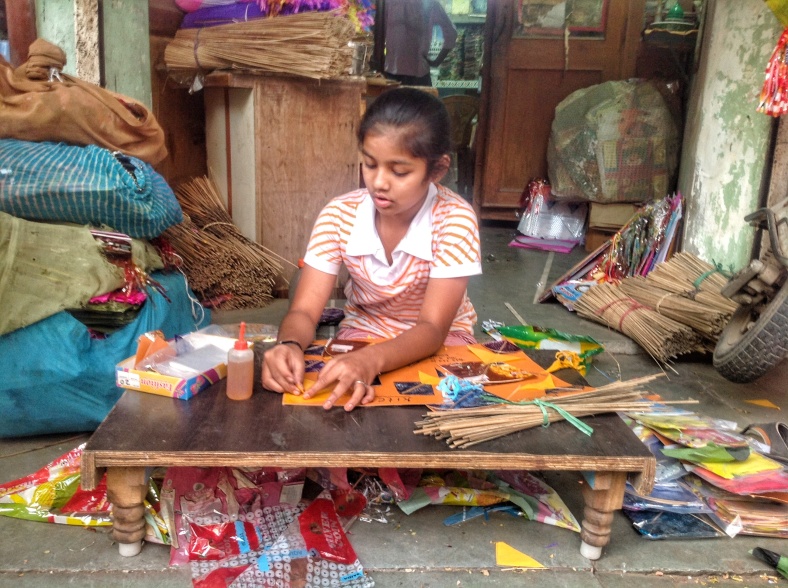
Finding stories in kite market of Ahmedabad
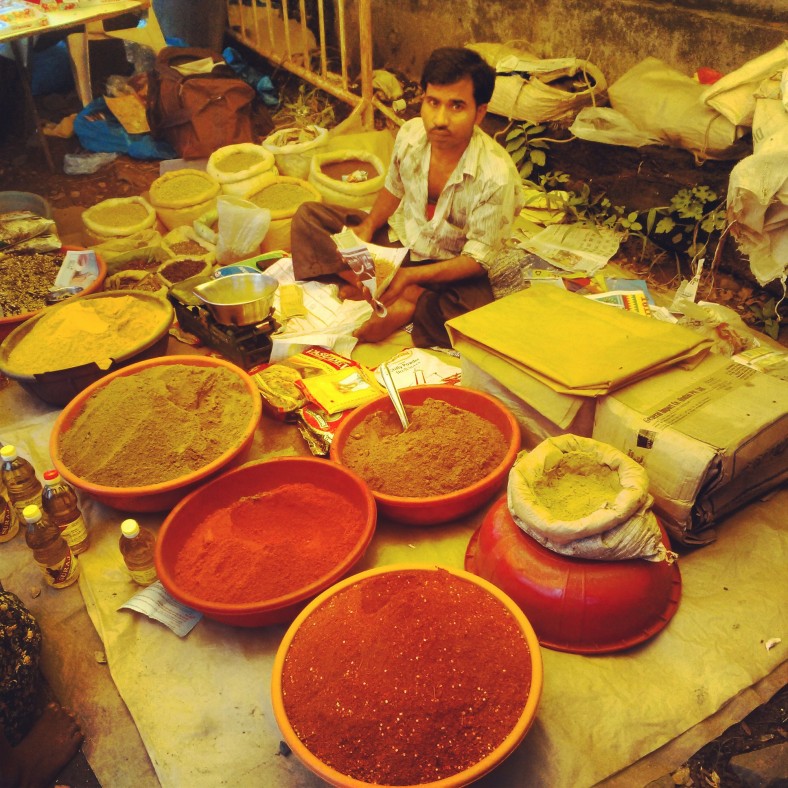
Finding stories in markets of Bordi
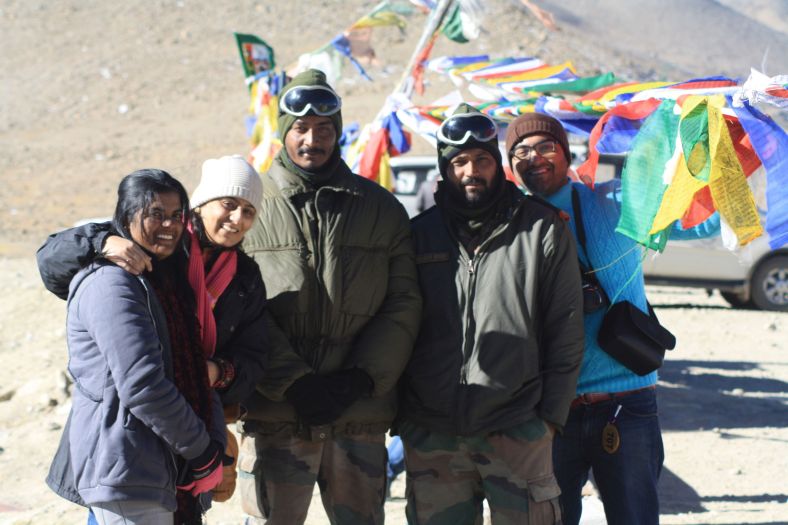
Finding stories of Indian army at 17,100 feet in the Himalayas
Hire a local guide and ask questions: Some people might find this unnecessary, however, a point to note here is that when you are exploring a destination, the destination on its own won’t speak to you about its heritage, history, significance, trial and tribulations or even triumphs. Off course, if you are to look at the temples of Khajurao, or Eiffel Tower in Paris, or if you go Volcano climbing in Indonesia, there will be boards and signs set up local tourist authorities that would give you a basic idea on the places. However, in my experience, unless, you hire a local guide, I don’t think you would come to know why the locals of Meghalaya are perhaps named as ‘Lazy guy’ or ‘Morning Star.’ 🙂 So hire a local guide, who would help you with minute details on your travels and help you get the right stories out there. Ask questions as many as you can to hit the right note with the guide.
Moral of the story: Guided tours often help with two important elements of story-telling while exploring a destination: Walking and spending time with locals and listening to their stories.
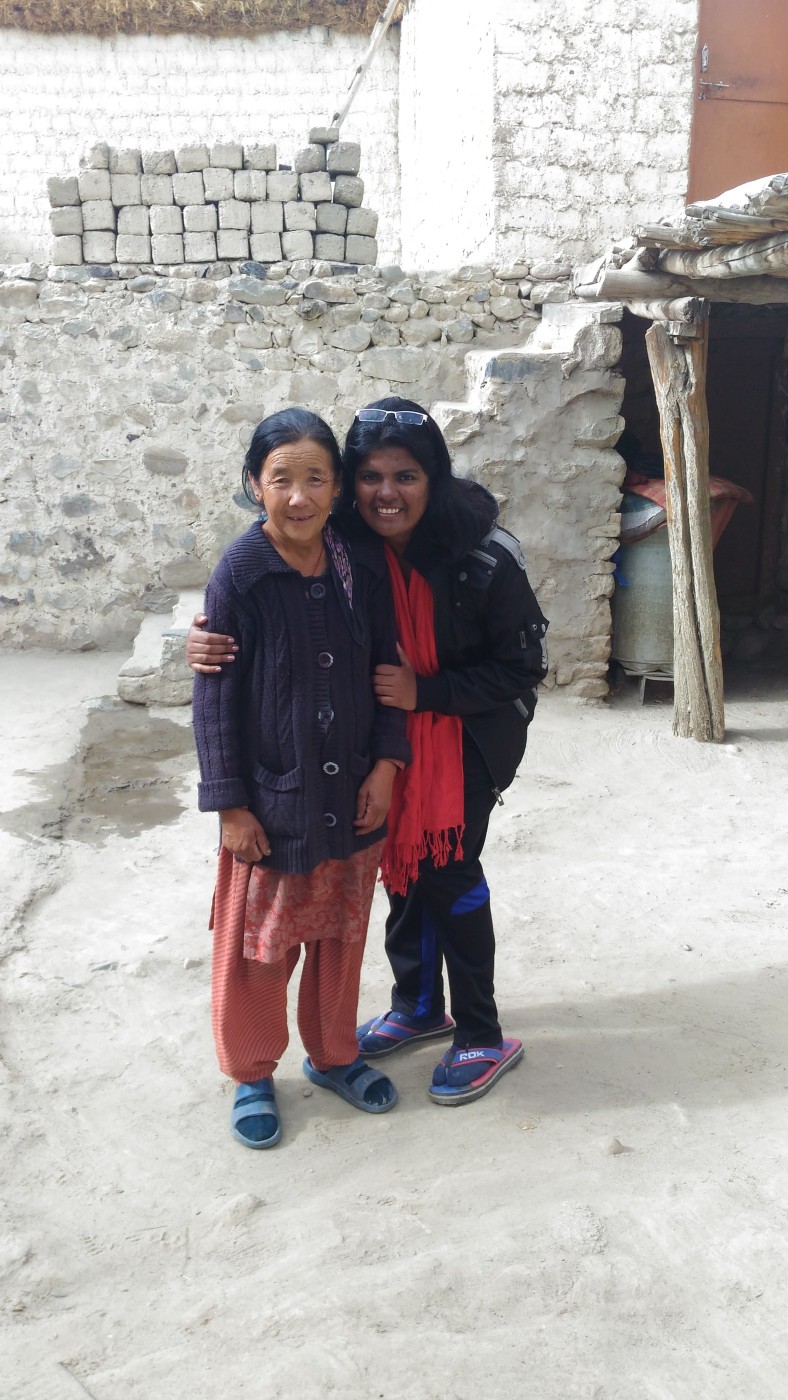
Staying with the locals
Take Notes: Yes, and do it as if the world is going to end tomorrow. One of the best advice, almost every writer will receive and give in his life time is the importance of taking notes. While our memories can be as sharp as we want, there is something utterly crucial about recording things while you explore them. For e.g. – If you are mesmerized looking at the Taj Mahal in moonlight, record your feelings, what you felt, how did the sky look like, how did the moonlight on the marble compare to say silky white spread, what were some of your thoughts witnessing the pure magic, what were some of the sounds that you could hear while you were there? Were there any smells that put your olfactory senses on high alert? These are the additional details which are going to make your story stand out from all the thousands and crores of other articles on Taj Mahal, the reader has ever read in magazines or online websites.
Moral of the story: The act of recording notes while traveling commits observation to memory and adds to your collection of ideas later. It also helps weave a story rather than mundane fact sharing.
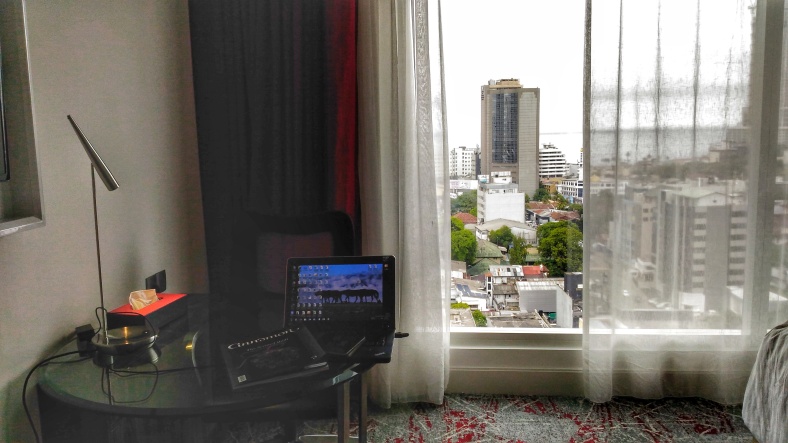
Travel writing is serious work. Work on travels is a norm
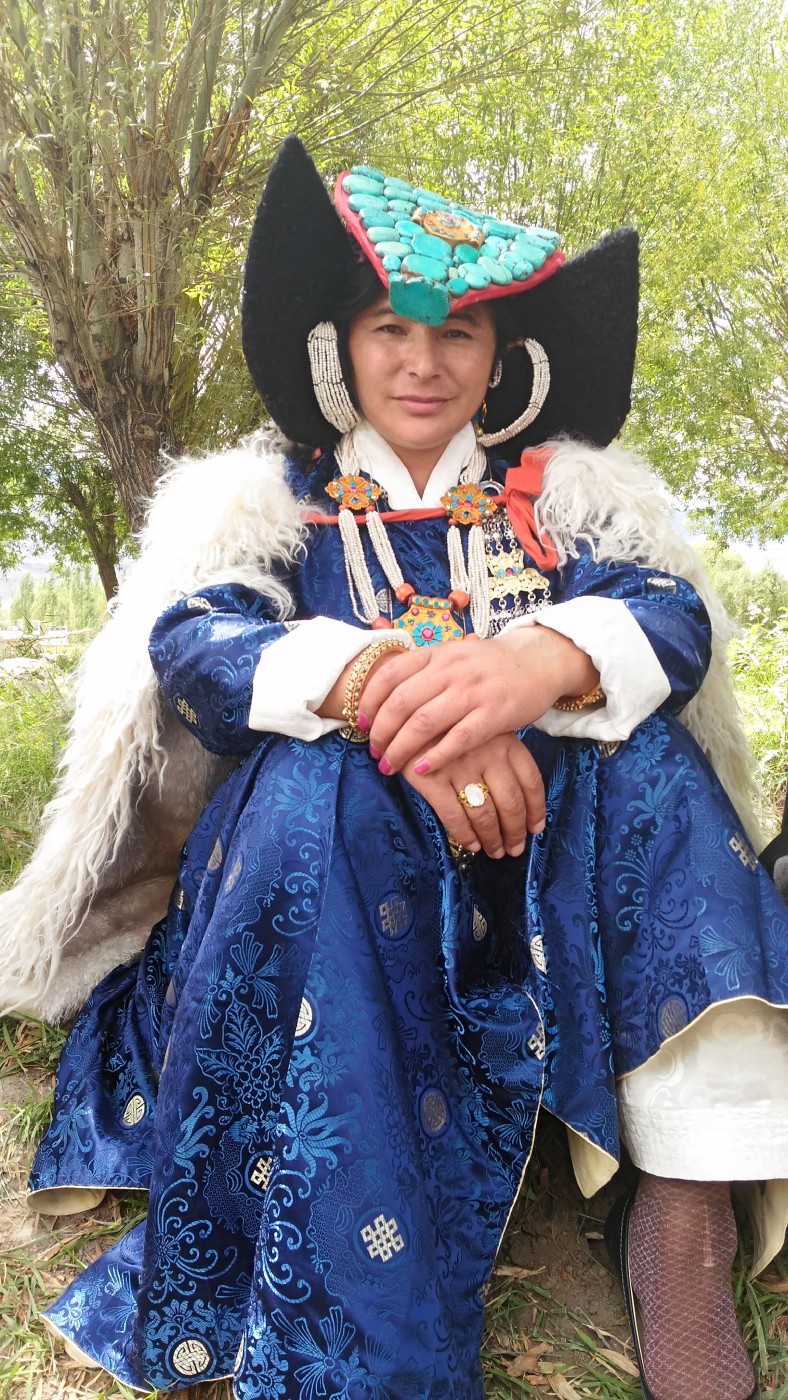
Our local guide in Ladakh informed us about a procession that was about to greet the Dalai Lama!
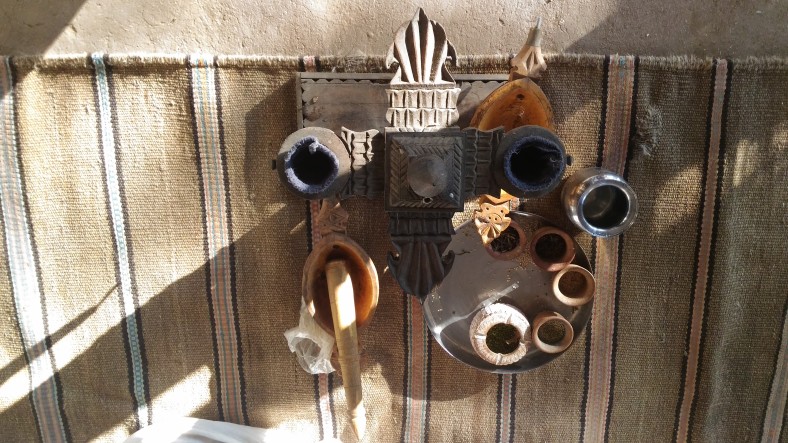
In Rajasthan, our guide informed us about the ‘Amal Sabha ceremony’, an event I would have missed, if I wouldn’t have met him
Go slow and off-track: Most often good travel writers, don’t rush their journeys and indulge in slow travel. If you are wanting to write a story on Rajasthan’s ‘Marwari’ culture, loosen up and let go of your FOMO (Fear of Missing Out) Recently, I was in Jodhpur to write a story on Marwari culture of Rajasthan. Therefore, I went and lived in a local Marwai home-stay, interacting and talking to people, taking part in their cooking sessions, learning about their music and traditions. In the bargain, I had to let go off exploring Jodhpur’s city quarters, street life and other important places like Umaid Bhavan Palace, Mandore Gardens, or Zip lining over the Mehrangarh Fort etc., My story took precedence over all the other touristy things, I could have, otherwise ended up doing.
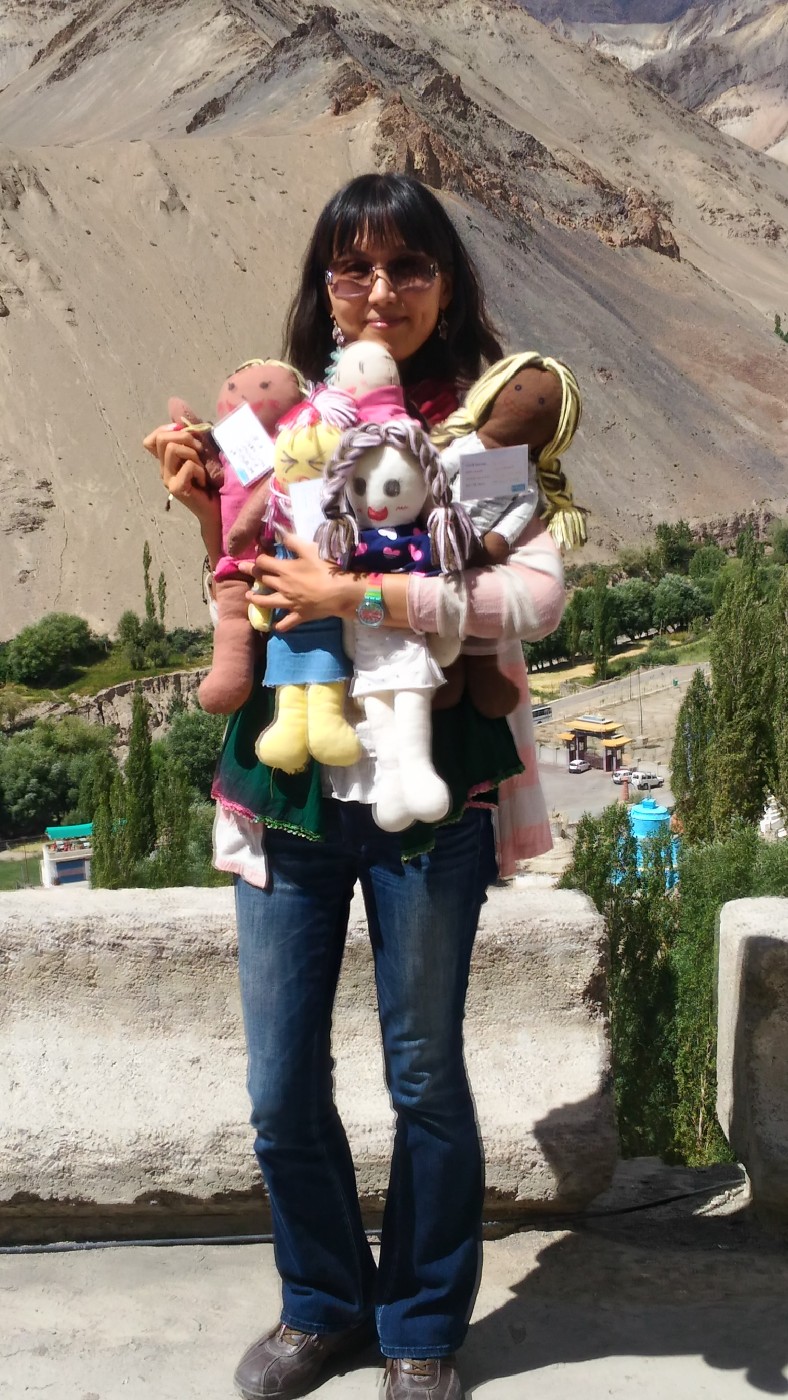
In Ladakh, a small accident changed our plans and forced us to travel slow. Result, we met an interesting Korean lady who travels across the world with dolls made by her students of different nationalities.

In Bali, we decided to ditch the beaches and go in search of the ‘world’s shittiest coffee.’
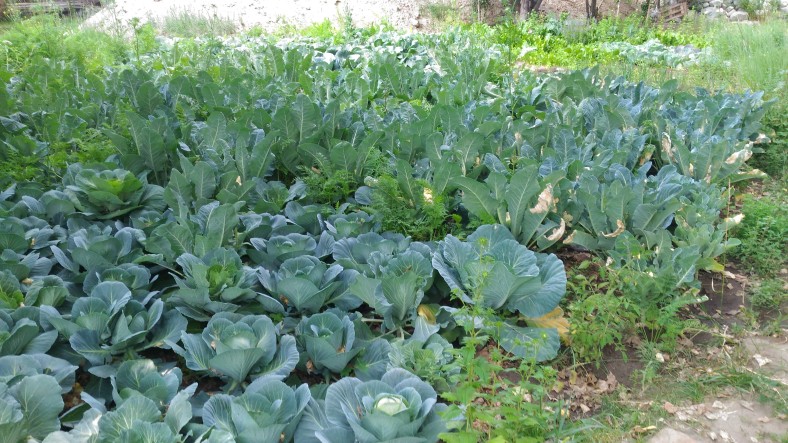
Learning about sustainable agriculture methods in Ladakh
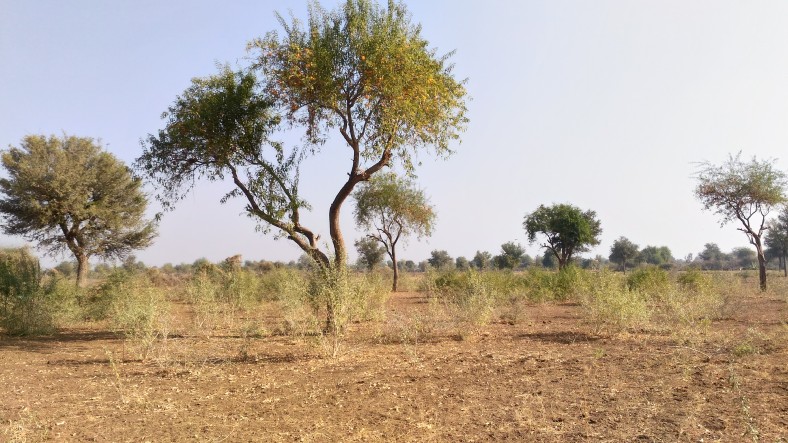
Learning about the Khejri tree massacre in Rajasthan, the origins of the Chipko movement in India.
Moral of the story: Travel writing can sometimes mean your story is more important than your experience as a tourist. The writer can be overpowering on the tourist, because as a travel writer, you’ll always have a deadline looming on your head!
Are you looking for a break into travel writing? Did you find this article useful? Are there any more questions or queries, you would like me to address? Tell me in comments below or contact me here.
I fully agree with you on ‘Travel writing and Travel blogging is not the same”. These two demand a different approach. Nobody can say that they are equally good at both.
You have touched upon how to become a travel writer/blogger. Would have loved to see from your PoV on Why to become a travel blogger. 🙂
LikeLiked by 1 person
Thank you Nisha. That is a good point to ponder on. I should think over it 🙂
LikeLike
Wow! What a lovely post.
Very engaging and informative. i always enjoy reading your posts. Keep up the good work.
LikeLike
Thanks Bidisha, I am glad you found this interesting.
LikeLike
A long blog but totally worth spending the time on. It’s good that you spoke some harsh realities of travel blogging. I didn’t have this guidance when I jumped in travel blogging. It was initially very hard for me to keep swimming. Gradually I learnt the ropes within a year and am now enjoy travel blogging. Fortunately for me travel writing also worked since some of my travel articles are published in magazines and newspapers. Both travel writing and blogging is hard work. Definitely not as glamorous as people think it is. Kudos for the post.
LikeLike
Thanks Abhinav. The idea of putting this post was people tend to think writing and blogging are the same. And when they are thinking of writing, they are actually referring to my blog. So thought, may be a post makes sense 🙂
LikeLiked by 1 person
Yup. We have a responsibility to our audience. Glad you wrote this.
LikeLiked by 1 person
Love this post… so important to distinguish between writing and blogging.
LikeLike
Indeed, thanks so much 🙂
LikeLike
nice informative piece and a must read for all travel bloggers and travel writers. Great one.
LikeLike
Thanks a lot 🙂
LikeLike
Loved reading the entire post. Although long but it was quite engaging and very insightful I must say Deepika. After all, years of experience does speak a lot. And yes, travel writing and blogging is certainly not as glamorous as it seems to be. Can say that from my own personal experience. But one has to go on swimming against the tide to sustain specially if people have to take care of their corporate jobs and blogging/writing concurrently.
Good one. 🙂
LikeLike
I really enjoyed reading this article and it came at a perfect timing. I had a similar discussion about travel blogging vs travel writing with someone last night, and the verdict was the same thing that you said ” A travel writer could be a travel blogger. But not every travel blogger is necessarily a travel writer!” I also agree that in order to be a successful blogger you need to have a niche about something that you are passionate about.
LikeLike
Insightful post, Deepika 🙂
LikeLike
Thanks so much Ira… Glad you found it helpful
LikeLike
Really nice post
LikeLiked by 1 person
Very comprehensive..travel blogging and writing are not the same but content can be the same . Some may be stories, some may be guides, some maybe experiences..its just important as a blogger to ensure that you have an audience.
LikeLiked by 1 person
Thanks Lakshmi. Completely agree with you 🙂
LikeLike
A super long article…. Just read some points and can not agree with you more…… Hopefully will read completely… at leisure…
LikeLike